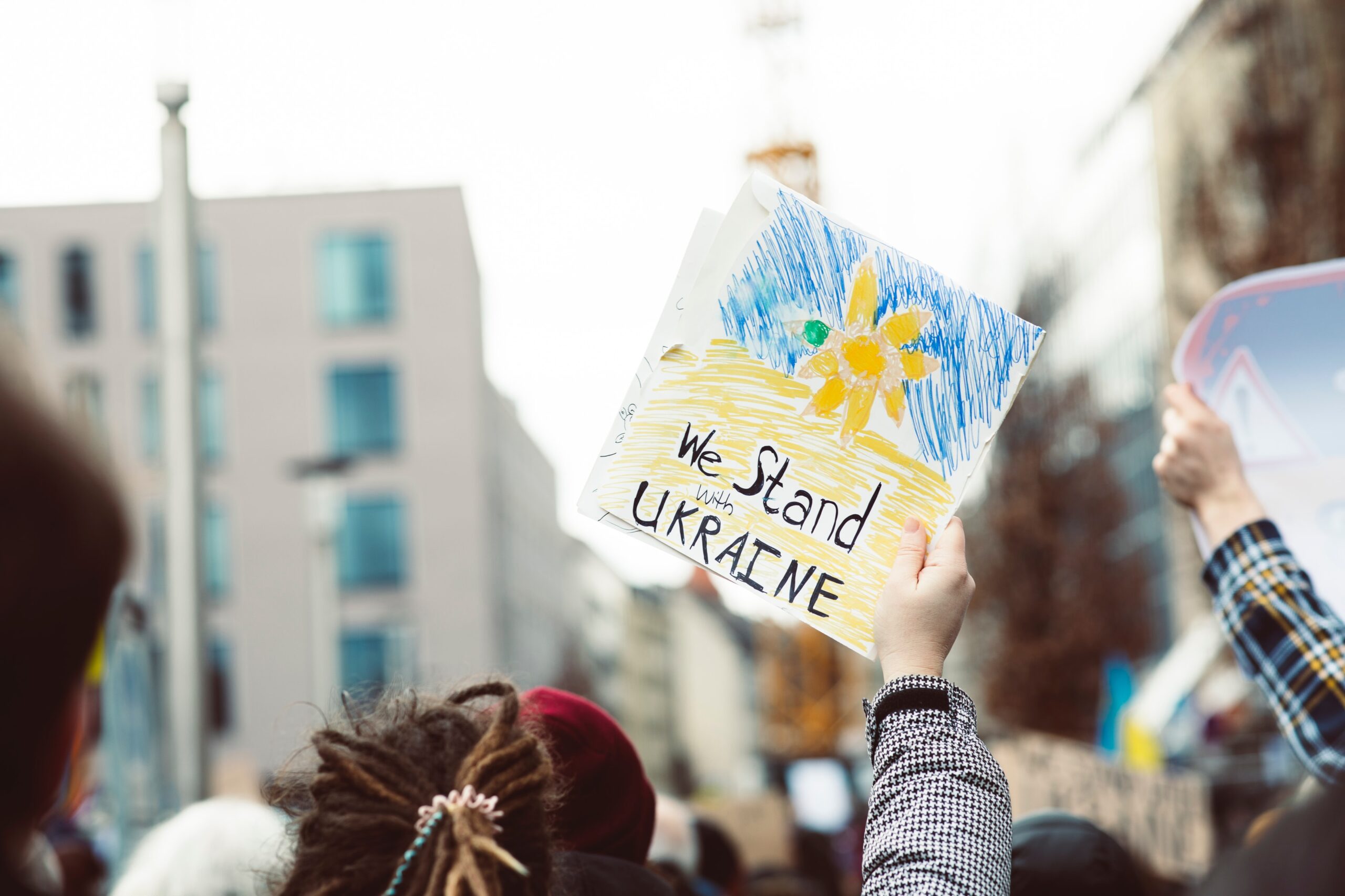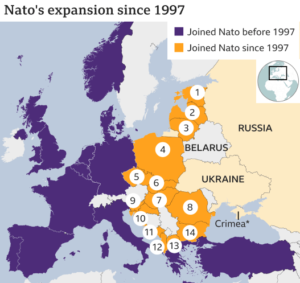
Empathy in a time of conflict
As I sit here, along with the rest of the world waiting for Putin’s 40 mile long convoy to reach Kyiv, I feel exhausted with the sense of powerlessness. The easiest first response is to want to fight fire with fire, to respond in kind. However, I am a trainer in nonviolent communication, I am a Quaker, I am frequently surrounded by others who work for peace, surely we can do better than that?
Barbara Deming talked of the two hands of nonviolence:
“With one hand we say to one who is angry, or to an oppressor, or to an unjust system, “Stop what you are doing. I refuse to honor the role you are choosing to play. I refuse to obey you. I refuse to cooperate with your demands. I refuse to build the walls and the bombs. I refuse to pay for the guns. With this hand I will even interfere with the wrong you are doing. I want to disrupt the easy pattern of your life.”
But then the advocate of nonviolence raises the other hand. It is raised out-stretched – maybe with love and sympathy, maybe not – but always outstretched… With this hand we say, “I won’t let go of you or cast you out of the human race. I have faith that you can make a better choice than you are making now, and I’ll be here when you are ready. Like it or not, we are part of one another.”
How does one extend that hand of nonviolence when confronted with images of aggression?
Empathy is the practice of taking time to understand someone else’s experience on their own terms. It is not about intellectually understanding, or analysing, or excusing. It is about emotionally discerning what is going on for them. If the other person is right in front of you, you can make guesses to check out with them whether you have discerned correctly. If not, you have to do it from afar, but even the process of opening your heart to try, you create a connection between you where love and peace can flow.
“Peace requires something far more difficult than revenge or merely turning the other cheek; it requires empathizing with the fears and unmet needs that provide the impetus for people to attack each other.”
Empathy starts with the self
When I hear that there is a convoy 40 miles long of Russian tanks heading for Kyiv, I feel rage, grief, heartbroken, exhausted with the sense of powerlessness. I am longing for a world where that doesn’t happen, longing for a world of peace, understanding, curiosity and mutuality in dealing with the other. Not a world of strong divisions and us and them and forming yourself into silos. These are the feelings I feel and the needs they are pointing to.
There is an element in my pain at hearing about the war that is personal to me. I have studied both Slavic languages and International Relations so there is a story there that I should be doing more, I should have had a different life where I was more active in these parts of the world. There is a shame, a disappointment with myself, that I have not put my skills and gifts to better use. That shame is pointing to a need for contribution and deep connection, to truly get involved in something that matters.
Why empathise with the self first?
If you don’t empathise with yourself first, it is easy to get lost in the trigger. You get lost in the images of devastation and suffering, lost in blaming your feelings on Putin. My need is for peace, mutuality and curiosity about the other. Is not up to Vladimir Putin to provide that for me. Once I have spotted that, I can take a moment to celebrate the things I already do in my life which work towards a world of peace and mutuality. My work as an NVC trainer, the practice I take part in as a Quaker. None of that stopped Putin invading Ukraine, but it does work towards a world of peace and mutuality and curiosity about the other. As I remember that I can feel my heart start to open.
The other reason to empathise with the self first is about creating capacity to hear the other. While I was still unconsciously distracted by my story of personal shame, I did not have space to see him on his own terms. Once I had identified that need, I decided to do more research about Putin in order to understand him better. Research and understanding is something that I can contribute. By understanding where he is coming from, it meets my own need for contribution and creates the space within me to break down my enemy image of him.
Caveats I need to say before I move on:
- Firstly, I fully recognise that others might be drawn more to empathising with the Ukrainian people, with the refugees, with the men who are having to stay and fight when they are not fighters, when they don’t want to. Nearly all my male friends are between the ages of 18 and 60, they don’t want to fight any more than I do. I fully recognise that they need empathy too. I also feel drawn to empathise with the Russian people and soldiers, many of whom would not have chosen this either.
- Secondly, to empathise is not to excuse. The willingness to open yourself to why someone has chosen the strategy that they have, and to see the humanity beneath that choice, does not mean that you let go of your belief that the path they have chosen will cause suffering.
Empathising with Putin
I heard someone on the radio this morning claiming that Putin was entirely in his own world. We hear people saying that he is mad, but that is a cop out. It’s a refusal to understand, it is a denial of the responsibility to try and understand. It’s a trump card, I don’t have to listen to you because you are mad, wrong, evil, because you are not human. But he is human, just as Hitler was human, just as all dictators are, human beings with needs and feelings.
Veterans for Peace (who are well worth following on social media for the excellent content they share) shared a post from someone about the NATO expansion encircling Russia since 1997.
So what are his feelings when he sees that? I guess he is frightened and longing for safety and security. NATO expansion is a sign of ‘The West’ having ‘won’ the Cold War (all these terms are heavily laden with ‘us and them’ significance). NATO is gradually being understood as everybody but Russia and China. Does he feel as if he has been backed into a corner? Does he feel isolated and afraid? He could easily perceive that ‘the West’ is rubbing his nose in it. We won the cold war, yah boo sucks. Much of the rhetoric in politics and on the news recreate this narrative. It is an act of violence too, to actively humiliate someone. Is he also longing for respect and mutuality? Does he perceive that he has run out of options to be seen in any other way?
He will be 70 this year. I have heard talk of Parkinson’s, I have heard talk of cancer. He is coming to the end of his healthy life and maybe his tenure. Maybe he is looking back with disappointment or sadness, frustration and anger, frustration that ‘the West’ doesn’t see the world as he does. Maybe he is longing for a shared reality of how great Russia is. Maybe he wants to be seen for his contribution in returning Russia to its imperial glory, to leave a legacy that corresponds with his vision of himself and Russia. Maybe he is longing for the sense of justice that that would bring.
I can empathise with his needs for respect and mutuality, for safety and shared reality. I fundamentally disagree with his strategy for meeting them and I feel deep grief that this is the path he has chosen.
Photo by Markus Spiske on Unsplash



